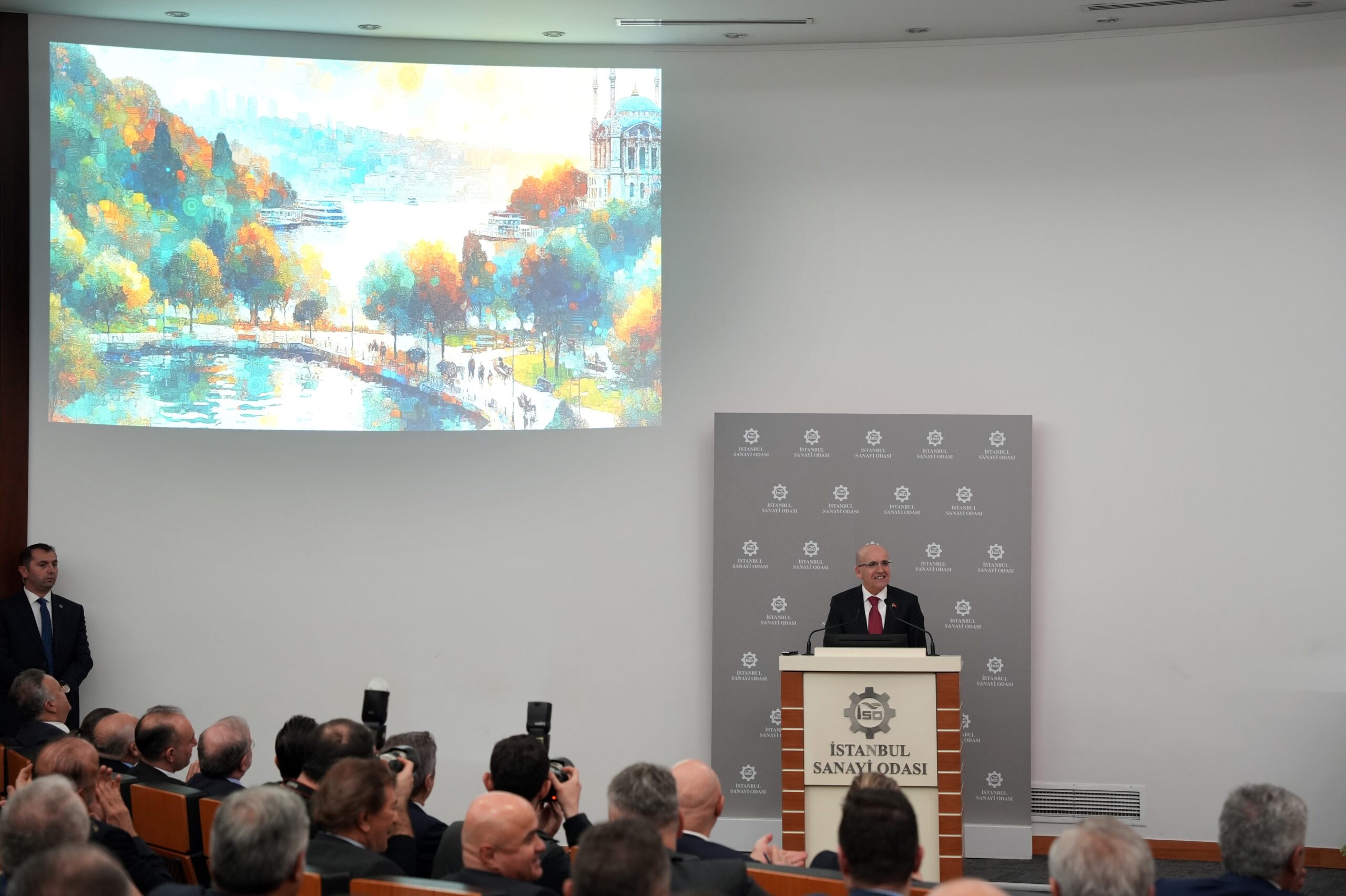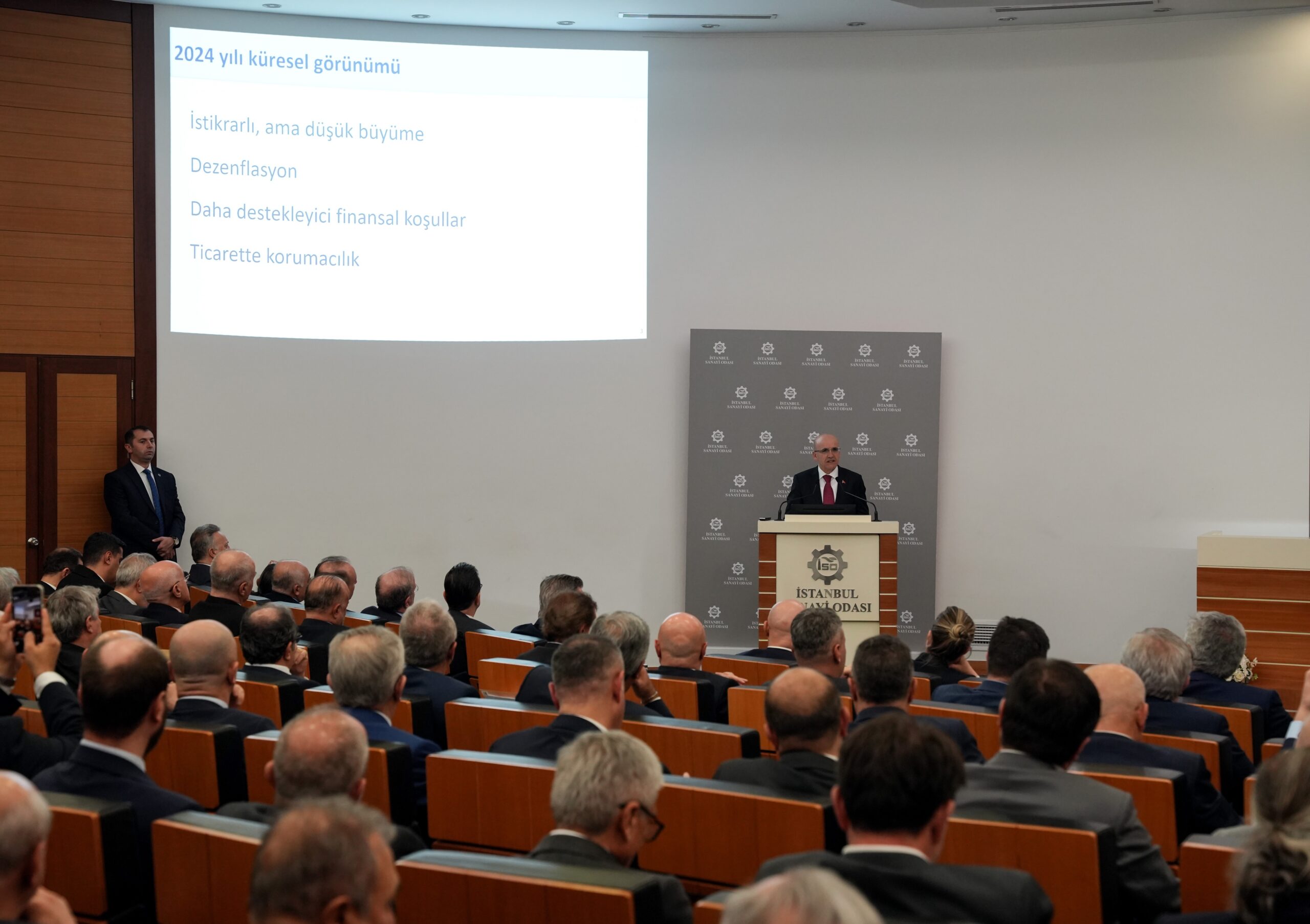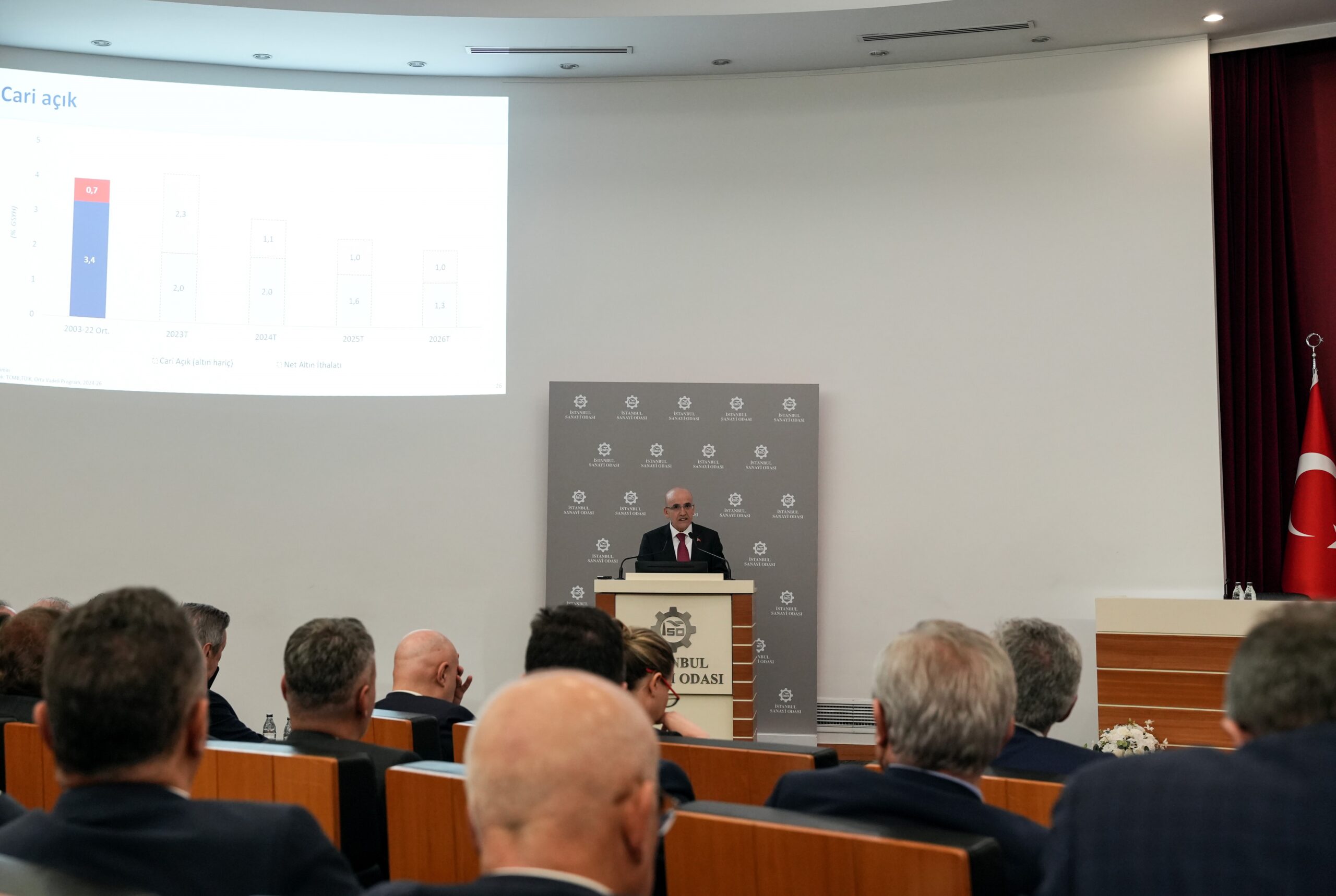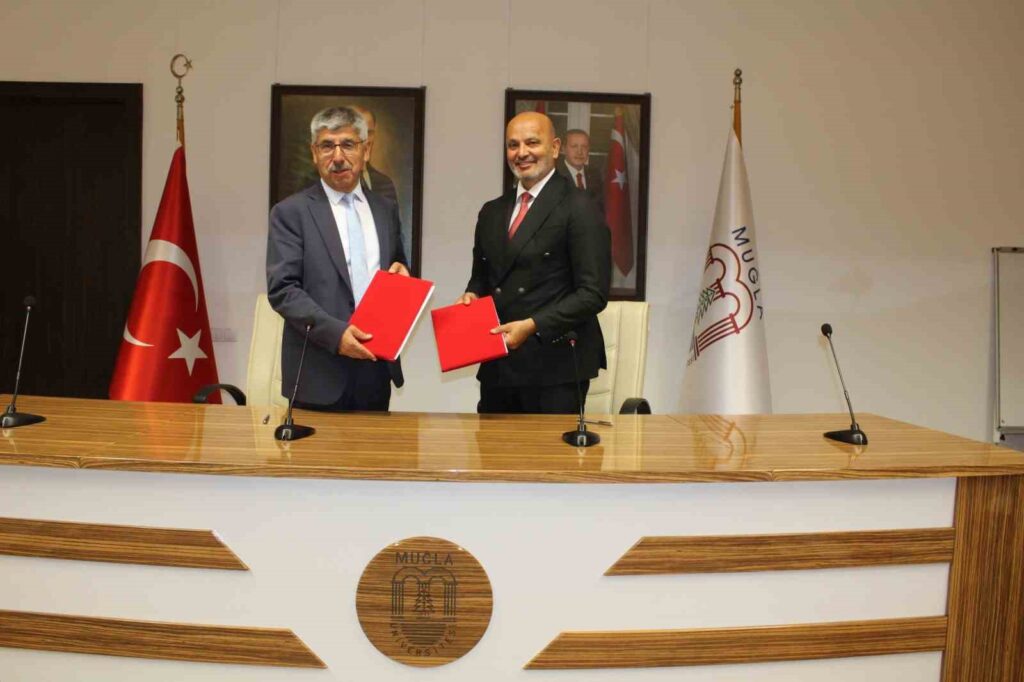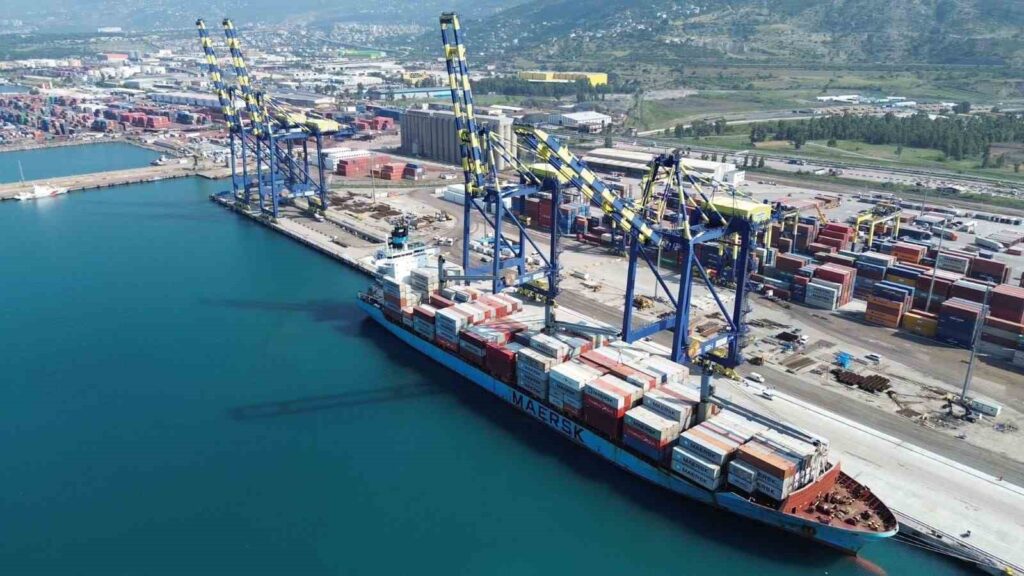Minister of Treasury and Finance Mehmet Şimşek: “We are seeing the results of our economic program
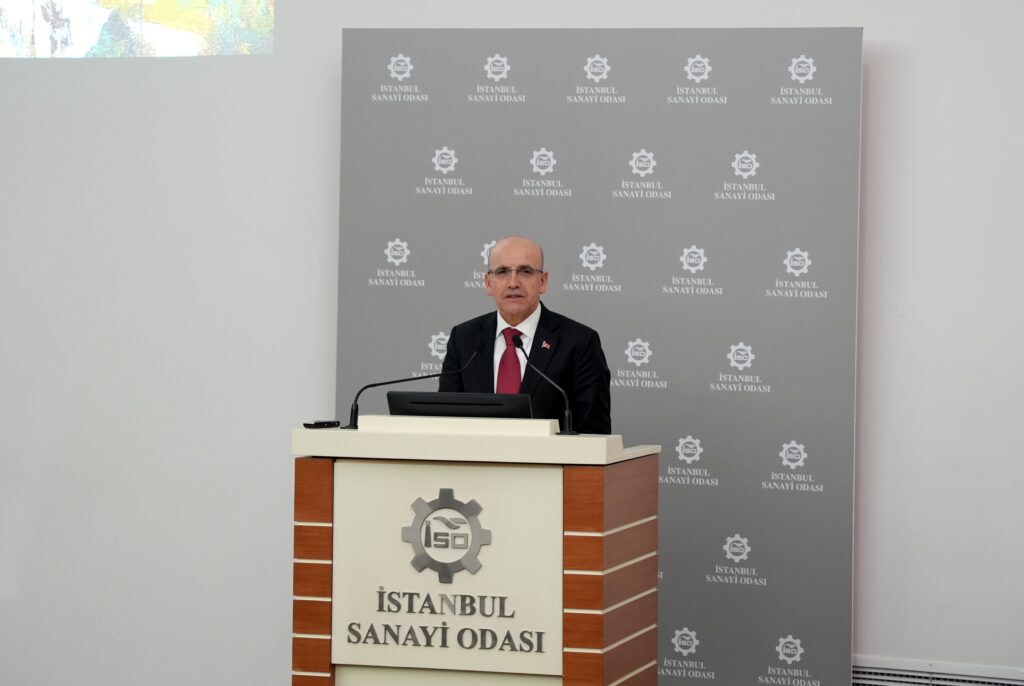
Hazine ve Maliye Bakanı Mehmet Şimşek stated, “We are achieving the results of our economic program. Our economic program is not a temporary enthusiasm; it’s a committed plan. We will not reinvent the wheel; it will be based on rules and transparency. The primary goal of this program is price stability.”
Hazine ve Maliye Bakanı Mehmet Şimşek attended the ordinary assembly meeting of Istanbul Chamber of Industry (ISO) and made a presentation on the global economy, the new economic program implemented in Turkey, and expectations.
Mehmet Şimşek, pointing out the slow pace of global growth, mentioned that according to World Bank estimates, global growth would be around 2.6% this year, and according to the IMF, it would be approximately 3.1%. He emphasized that we are in a period of slow global growth, and although growth is weak, it is expected to rise somewhat in 2024. He anticipated close to 1% growth this year, and a growth rate between 2-3% would be significant as global trade recovery is expected to begin.
Discussing global inflation, Şimşek noted that the inflation rate is expected to drop to 8.1% globally. He highlighted the importance of the inflation trend in developed countries, stating that it is expected to decrease to 2.6%. He also mentioned expectations of interest rate cuts by the Federal Reserve (Fed) and the European Central Bank (ECB) in 2024 and 2025 due to declining global inflation, with an estimated 140 basis points cut for the Fed and 130 basis points cut for the ECB in 2024.
Şimşek emphasized the intensification of protectionist policies in global trade, stating that protectionism has become the new norm. He mentioned the shift in the importance of supply from friendly countries and the decrease in supply from geographically distant countries, indicating that Turkey has advantages in this regard.
Regarding the Medium-Term Program, Şimşek highlighted the importance of price stability as the main goal. He stated that without price stability, predictability cannot be achieved, and without predictability, there cannot be a qualified, sustainable, and competitive industry. He stressed that the sole condition for permanent and high growth is price stability and that when inflation is permanently lowered to single digits, Turkey will have resolved the issue without the need for intervention.
Commenting on the current account deficit, Şimşek mentioned the goal of a sustainable current account deficit and the importance of not increasing external debt as a proportion of national income. He outlined the measures to achieve this goal, including tight monetary and fiscal policies, normalization of gold imports, reducing dependence on energy imports, and increasing industrial transformation.
Discussing economic reforms, Şimşek highlighted the need for structural reforms. He stressed that growth cannot be sustained by consuming internally and externally only, and structural reforms are essential. He stated that their program’s fundamental framework includes providing support to the industry, especially in research and development (R&D) and incentives. He emphasized the importance of a legal state in improving the investment environment.
Addressing the issue of income distribution, Şimşek stated that price stability is essential for fair income distribution. He emphasized that their devaluation program’s framework is simple and based on international norms. He expressed confidence that inflation would decrease, and the program would be implemented with patience and determination.
Discussing the recent economic developments in Turkey, Şimşek mentioned that they are starting to see monthly results and that the first year is a transition period. He highlighted the decrease in the country’s risk premium and the improvement in the outlook. He mentioned that economic balancing has begun, and the negative impact of external demand is slowing down. The current account deficit, which peaked at $60 billion in May, is expected to decrease to $30 billion, and the trade deficit will continue to decrease. Improvement in inflation expectations was noted, with a 6-point improvement compared to October 2023. Şimşek expressed confidence in the success of their economic program and the positive changes in credit ratings.
Regarding the role of the Export Credit Bank of Turkey (Eximbank), Şimşek mentioned that they plan to provide $50 billion in support this year but emphasized the need to increase it further. He stated that they are providing significant support to the industrial sector through various incentives, such as R&D and premium incentives. He announced that efforts would be made to expand the tax base and collect taxes more fairly.
In conclusion, Şimşek stated that Turkey is in a good position in terms of preparing for artificial intelligence, indicating that the country is close to developed countries in the Artificial Intelligence Preparedness Index. He also addressed the importance of connecting Organized Industrial Zones (OSBs) to ports via railways to strengthen the country’s physical infrastructure.
Kaynak: IHA


